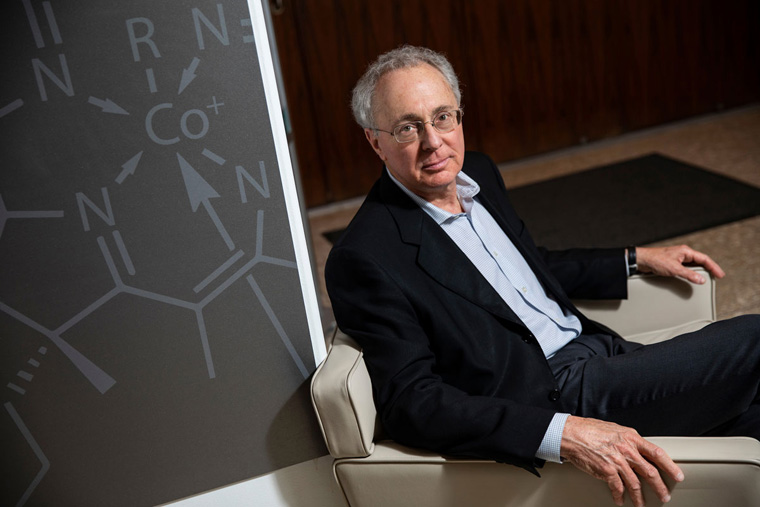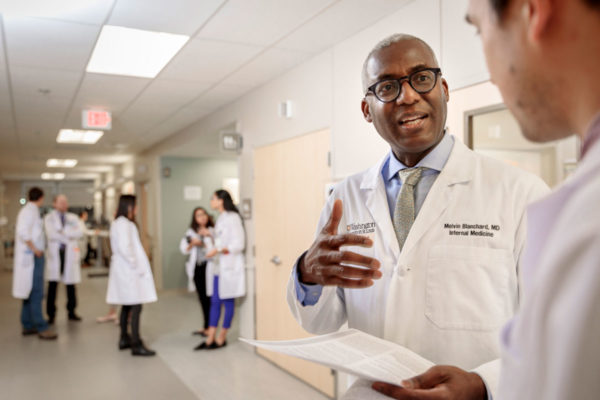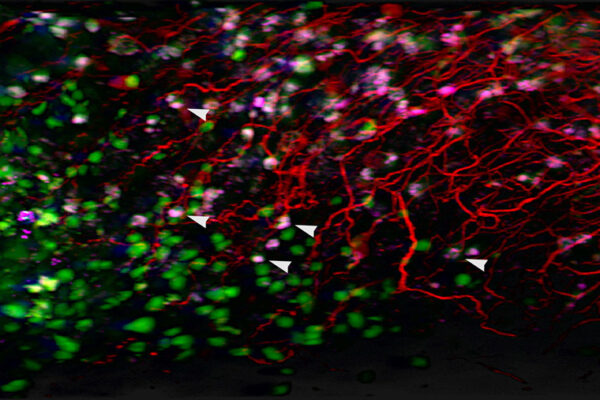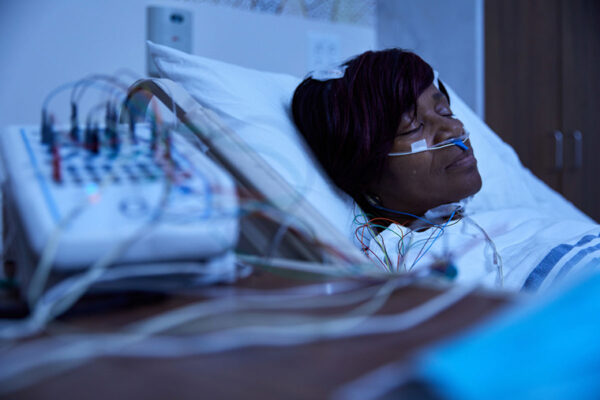The Merck Foundation has made a $2 million commitment to Washington University School of Medicine in St. Louis to establish two endowed assistant professorships supporting early-career physician-scientists from populations that are historically underrepresented in medicine and biomedical sciences.
Named for Roger M. Perlmutter, MD, PhD, a graduate of Washington University’s Medical Scientist Training Program who later went on to lead research and development at Merck, the professorships will help advance the work of assistant professors pursuing promising medical research.
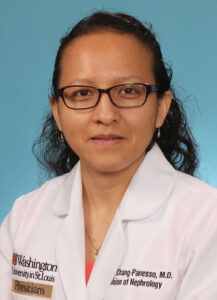
The first Roger M. Perlmutter Career Development Professorship will be awarded to Monica Chang-Panesso, MD, assistant professor of medicine in the Division of Nephrology. Another School of Medicine faculty member will be chosen for a second Perlmutter professorship in the near future.
“The experience that I had at Washington University School of Medicine was transformational; the six years that I spent there made all the difference in terms of my ability to pursue a career in science and in drug discovery,” Perlmutter said. “Time and again, Washington University School of Medicine, in its teaching mission, its research mission and its mission of clinical translation, has done more than other academic medical centers to advance the cause of medical practice. I am deeply honored to have this gift from the Merck Foundation, which bears my name, to help further the cause of this great academic medical center.”
The new career development professorships will provide support for faculty from populations underrepresented in medicine as they build their research programs. Once a recipient achieves tenure and transitions to the next career level, the professorship will be awarded to another faculty member.
“Helping to create opportunities for physician-scientists to focus on research and develop as investigators is deeply important to the School of Medicine and is one of the core values that has distinguished WashU for many decades,” said David H. Perlmutter, MD, the George and Carol Bauer Dean of the School of Medicine, executive vice chancellor for medical affairs, and the Spencer T. and Ann W. Olin Distinguished Professor. “By providing support in the critical early phases of the career, these professorships, which are also enhanced by the prestige of Dr. Roger M. Perlmutter’s many career accomplishments as a physician-scientist, will better position us to address the urgent need for more physician-scientists from populations that historically have been excluded from medicine.”
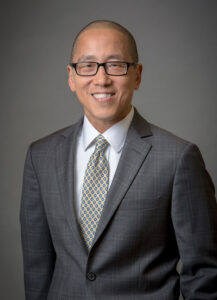
Dean Y. Li, MD, PhD, Merck executive vice president and president of Merck Research Laboratories, and successor to Roger M. Perlmutter at Merck, explained that the Merck Foundation decided to honor Roger M. Perlmutter’s career by making a gift in his name to an institution with which he holds a long and proud association. Providing support to boost the careers of young physician-scientists seemed more than fitting.
“The physician-scientist is critical for an academic medical center such as WashU,” said Li, also a graduate of the university’s Medical Scientist Training Program. “You have the science, and you have your clinical mission. The person who ties that together is the physician-scientist. Focusing on young scientists, especially physician-scientists at the early stages, is where the need is.”
Chang-Panesso, the first faculty member named to a Perlmutter professorship, studies molecular mechanisms that impair the regenerative response after acute kidney injury, particularly when, in older people, the kidneys suddenly stop working as they should. Her current research, supported by a five-year grant from the National Institutes of Health (NIH), seeks new therapeutic targets and clinical interventions to improve the success of kidney repair in older patients.
“I am very honored to be the recipient of the Roger M. Perlmutter Career Development Professorship,” Chang-Panesso said. “It is an amazing initiative supporting the career development of underrepresented physician-scientists, and I am very grateful to have been chosen.”
Born and raised in Colombia, Chang-Panesso completed her undergraduate and postgraduate training in the United States, including a bachelor’s degree in biochemistry from the University of Texas at Arlington and a medical degree from the Texas Tech University Health Sciences Center School of Medicine in Lubbock, Texas.
She completed her residency at the University of Texas Southwestern Medical Center at Dallas and a nephrology fellowship at the Brigham and Women’s Hospital/Massachusetts General Hospital program in Boston. She joined Washington University as a postdoctoral research scholar in 2015 and was promoted to assistant professor of medicine in 2018.
As a bilingual physician with Hispanic and Chinese roots, she is well aware that the rate of kidney disease is higher among racial and ethnic minorities. She hopes her career as a physician-scientist will help her identify treatments that will make a beneficial impact in these communities.
Roger M. Perlmutter earned his medical and doctoral degrees from Washington University in 1979. A member of the School of Medicine National Council since 2005, he received the university’s Distinguished Alumni Award in 2018.
Perlmutter’s family includes two more Washington University graduates. His wife, Joan Kreiss, an infectious diseases specialist, earned a medical degree in 1978. His son, Noah, earned an undergraduate degree from Arts & Sciences in 2020.
Before assuming leadership roles in industry, Perlmutter was a professor in the departments of immunology, biochemistry and medicine at the University of Washington, Seattle. He also served as a Howard Hughes Medical Institute investigator and chaired the Department of Immunology there. He is a fellow of the American Academy of Arts and Sciences and the American Association for the Advancement of Science, and past president of the American Association of Immunologists.
Perlmutter joined Merck Research Laboratories in 1997 as executive vice president of basic and preclinical research. From 2001 to 2012, he served as executive vice president and head of research and development at Amgen. He returned to Merck in 2013, serving as executive vice president and president of Merck Research Laboratories until his retirement in 2020. He became chief executive officer of Eikon Therapeutics, a company that employs super-resolution microscopy to pursue the discovery of new medicines, in 2021.
During his academic and corporate careers, Perlmutter has supervised the discovery, development and subsequent approval of novel medicines addressing major inflammatory and endocrinologic diseases, as well as a breakthrough oncology therapy that works with the immune system to help fight certain types of cancer.
Under his leadership, Merck received more than 100 regulatory approvals for its medicines and vaccines globally, including more than 15 novel vaccines and therapeutics for multiple cancers, diabetes and infections caused by Ebola virus, human immunodeficiency virus, hepatitis C virus and cytomegalovirus.
Washington University School of Medicine’s 1,700 faculty physicians also are the medical staff of Barnes-Jewish and St. Louis Children’s hospitals. The School of Medicine is a leader in medical research, teaching and patient care, consistently ranking among the top medical schools in the nation by U.S. News & World Report. Through its affiliations with Barnes-Jewish and St. Louis Children’s hospitals, the School of Medicine is linked to BJC HealthCare.
